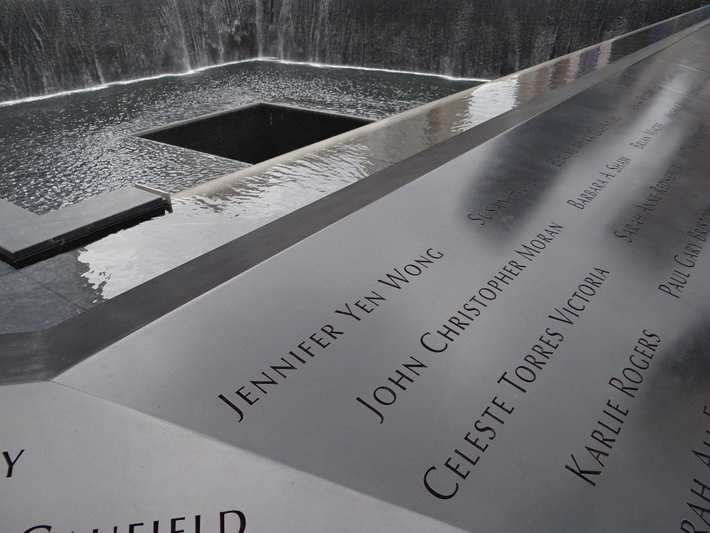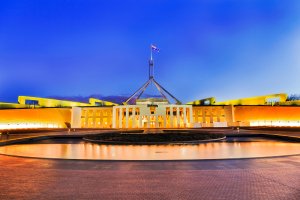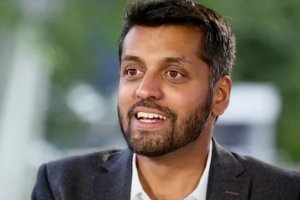The demonization of Muslims in the United States reached an all-time high in the aftermath of the September 11, 2001, terrorist attacks in the country, and over the past two decades, what it means to be Muslim in America has evolved in diverse and nuanced ways. This was the view of a panel of journalists and scholars in a September 2 webinar on the impact of 9/11 on American Muslims, “The Muslim Experience in the Shadow of 9/11.” The discussion was hosted by the Associated Press, The Conversation and Religion News Service.

The discussion was moderated by Simran Jeet Singh, Senior Adviser for Equity and Inclusion at YSC Consulting, and visiting professor at Union Theological Seminary, an independent New York City-based organization committed to interreligious engagement.
Singh spoke of how politicization of 9/11 has affected American Muslims and their daily lives.
Rowaida Abdelaziz, who covers social justice issues, civil rights, Islamophobia and immigration-related subjects for The Huffington Post, said that since 9/11 she has been traveling the country to talk with Muslims to find out what’s on their minds and how the government has helped or failed them. Abdelaziz said many have worked strenuously to emphasize that the U.S. Muslim community is not a monolith.
“There have absolutely been calls for unity from activists and mosque leaders who have come together and tried to fight what they see as … an Islamophobia industry’s efforts to dehumanize the Muslim community, to politicize them, to racialize them,” she said. But various Muslim communities have responded in different ways to the challenges of Islamophobia. “One of the biggest problems with anti-Muslim sentiment is this concept of stripping away their humanity and thinking we all act the same, we think the same,” she said. “Reckoning with the diversity of the community is the right way to start addressing the situation.”
Asma Uddin, practicing Muslim and fellow at Aspen Institute’s Inclusive America Project, advocates for all religious believers to practice their faith freely. “Given my posture of integrity, it is distressing to see religious freedom become politicized,” she said and noted that “some people who are quite vocal about their rights actively work to cut Muslims out.”
Uddin’s book The Politics of Vulnerability: How to Heal Muslim-Christian Relations in a Post-Christian America: Today’s Threat to Religion and Religious Freedom, published last month, focuses on the “theme or claim of anti-Muslim advocacy ... that Islam is not a religion, which means Muslims aren’t religious believers, and that they are therefore not protected by religious freedom.”
They put forth the notion “that Islam is a political ideology, and a dangerous one at that … that it’s somehow a tool to take down America [and] that it must be shut down,” and that “wearing a headscarf, growing a beard, praying five times a day, even saying the word Inshallah, or ‘God willing,’ becomes a security concern.”
The events of September 11, 2001, “instigated this kind of attack,” she said. “I think the anti-Muslim attitude existed before 9/11, but there is no doubt that 9/11 had an impact on Muslims’ religious exercise in the United States.”
Uddin cited as an example the use of the Religious Land Use and Institutionalized Persons Act (RLUIPA), passed in 2000, less than a year before 9/11, meant to “protect individuals, houses of worship and other religious institutions in zoning and landmarking laws.”
“When Congress was passing this statute it reviewed a wide array of evidence of discriminatory acts against houses of worship,” Uddin said. At that time “Muslim communities were barely on Congress’s radar. And yet in the first 10 years after RLUIPA was passed, 14 percent of the investigations opened by the Department of Justice involved Muslim communities. To really understand the gravity of that, consider that Muslims constitute only 1.1 percent of the American population.”
“So today we continue to see a sustained campaign by influential individuals and organizations to make life really hard for Muslim communities trying to build mosques or even religious cemeteries.” She also cited “217 proposals in 43 states to ban Muslim religious arbitration.”
Noreen Nasir, a video journalist on race and ethnicity for the Associated Press said she was in the seventh grade when the terrorist attacks occurred. “A lot of us were old enough to remember when 9/11 happened but still young enough to have been impacted in our identity and our search for ourselves as young Muslims,” she said. “We are learning a lot from those who are younger—folks who are stronger in their understanding of who they are—and are still being made to answer for the event, even though they were either not alive or not old enough to remember what happened.”
Nasir spoke of the many working-class Muslim Americans, especially in the New York and New Jersey areas, who were “detained without cause and disappeared off the streets…their families didn’t know where they were, and eventually they were deported.”
“This affected their children, who were my age,” she said. She described the son of a father who was arbitrarily detained following the 9/11 attacks. “He was in eighth grade and he came home from school, just like I did that same day, and his father was gone, and he had no idea where he was—for months. So while there is a whole range of experiences of what Muslim American millennials had to confront, I want to make sure we don’t forget the more sinister things that really had an impact on working-class families.”
Nasir decided to wear the hijab in the summer after 9/11. “I took on this visual representation of what Muslims were and are.” In many ways, her actions were prompted by pressure to represent her community. “And when I look back at that, it makes me feel a little sad at times,” she said. “I think a lot of younger Muslims are coming at it in a different way—from a more holistic approach of who they are as young Muslims. But they still feel the remnants of the bias and the discrimination that happened after 9/11 and continues to happen today.”
Abdelaziz pointed out that the oldest population of Muslims in the country is African American; that the overall population of U.S. Muslims has doubled since 9/11; and that the fastest-growing segment of the total population is Latino Muslims.
“Unfortunately, one of the obvious ways that diversity has been simplified is by only talking about folks who are Arab or Middle Eastern or come from South Asian descent,” she said. “We see it in journalism, we see it in entertainment—films, Hollywood—and it really squashes the racial component of the diversity of our faith.”
Besides affecting official policies, that over-simplification has led to numerous problems, such as an increase in anti-Muslim hate crimes. “Muslim women tend to be at the forefront of that hate because of their very visible markers.” Muslim men, by contrast, are “racially ambiguous—you don’t really know who they are unless you have spoken to them.”
The consensus of the panelists was that 9/11 took a heavy mental toll on young Muslims. “I don’t think we can underestimate just how pervasive and severe it was,” Abdelaziz said. She agreed with Nasir, that “younger Muslims nowadays are a lot more confident—they’ve seen what folks from my generation and the older have gone through, they’ve witnessed an injustice they feel compelled to speak up against, there’s a lot more courage, there’s a lot more education, there’s a lot more activism—and there are just a lot more Muslims.”
“Statistically speaking, we are a lot more likely to be in positions of power and influence,” she said.“I think that’s what makes me hopeful.”
______________
The Church of Scientology publishes this blog to help create a better understanding of the freedom of religion and belief and provide news on religious freedom and issues affecting this freedom around the world.
The Founder of the Scientology religion is L. Ron Hubbard and Mr. David Miscavige is the religion’s ecclesiastical leader.
For more information, visit the Scientology website or the Scientology TV network.


